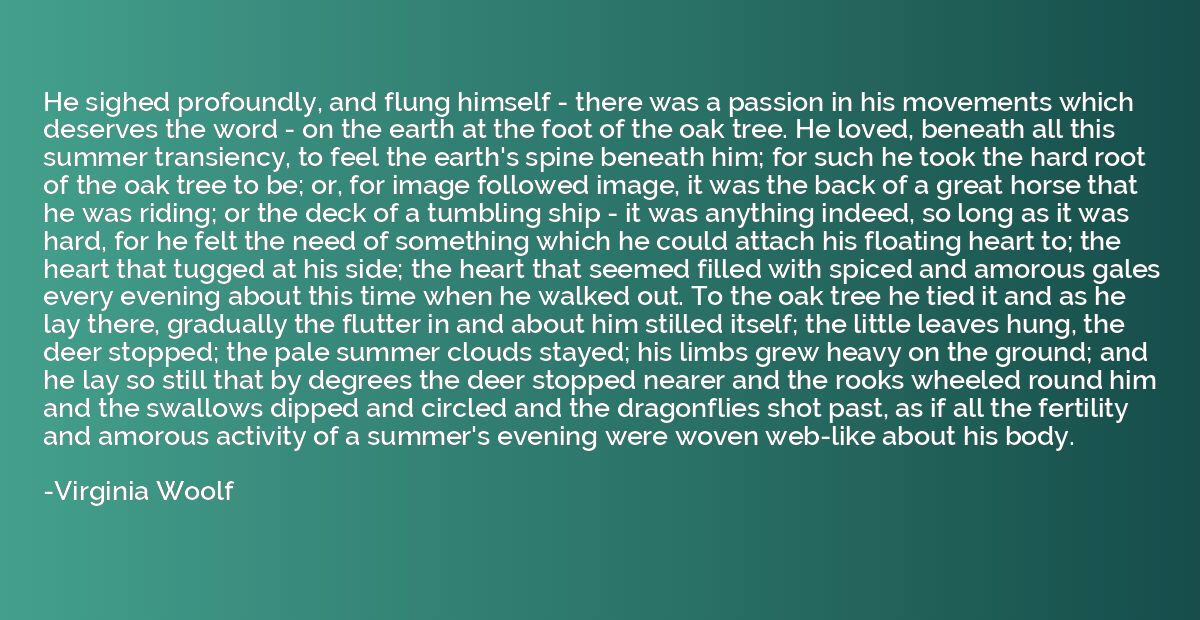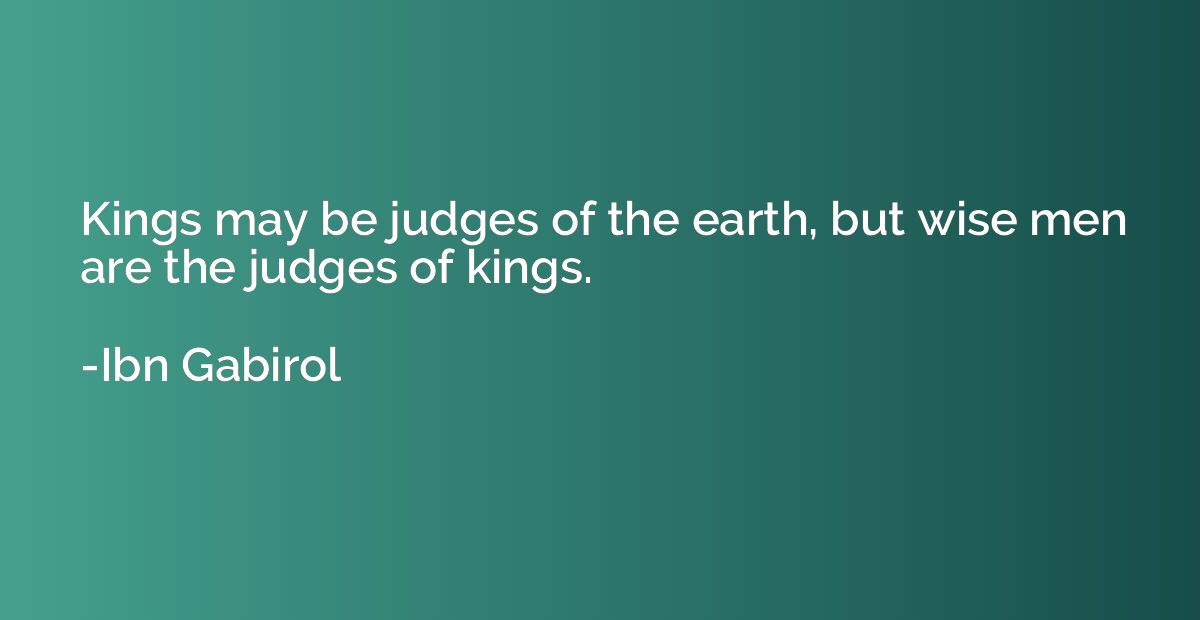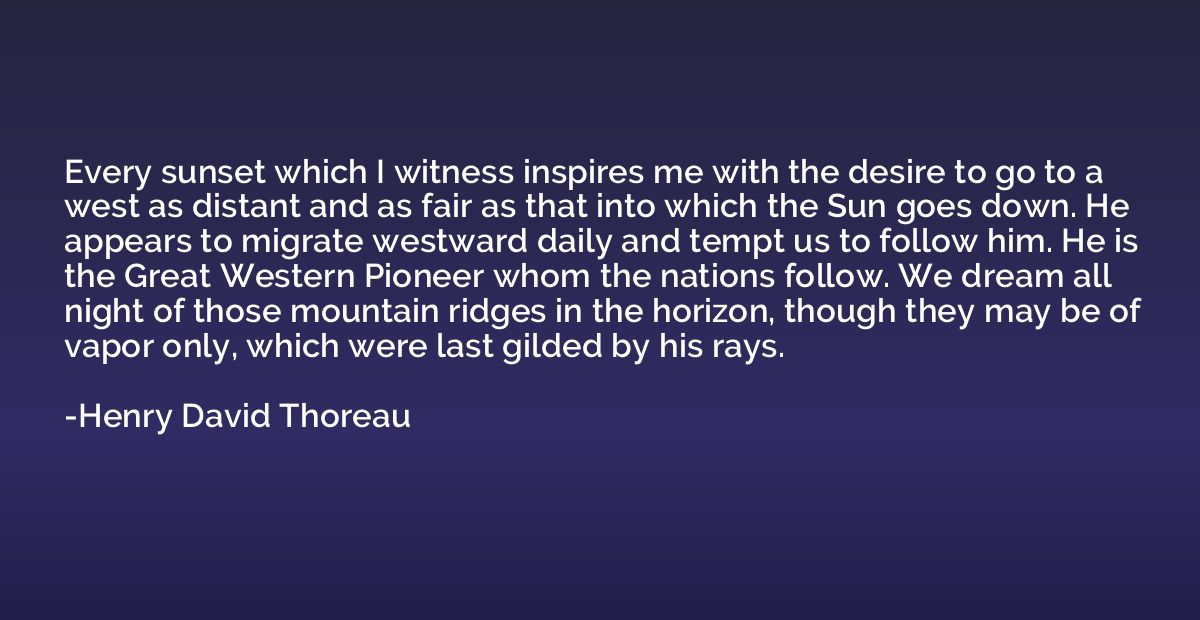Quote by Virginia Woolf
He sighed profoundly, and flung himself - there was a passion in his movements which deserves the word - on the earth at the foot of the oak tree. He loved, beneath all this summer transiency, to feel the earth's spine beneath him; for such he took the hard root of the oak tree to be; or, for image followed image, it was the back of a great horse that he was riding; or the deck of a tumbling ship - it was anything indeed, so long as it was hard, for he felt the need of something which he could attach his floating heart to; the heart that tugged at his side; the heart that seemed filled with spiced and amorous gales every evening about this time when he walked out. To the oak tree he tied it and as he lay there, gradually the flutter in and about him stilled itself; the little leaves hung, the deer stopped; the pale summer clouds stayed; his limbs grew heavy on the ground; and he lay so still that by degrees the deer stopped nearer and the rooks wheeled round him and the swallows dipped and circled and the dragonflies shot past, as if all the fertility and amorous activity of a summer's evening were woven web-like about his body.

Summary
This quote describes the profound connection the narrator feels with nature, specifically with the earth and an oak tree. The narrator finds solace in physically connecting with something sturdy and unchanging amid the transient nature of the summer season. By resting his heart on the stable oak tree, the narrator's restless thoughts and emotions gradually settle, merging with the peaceful and lively ambiance of the summer evening. This scene highlights the power of nature to calm and ground the human soul, providing a sense of stillness and oneness with the world.














